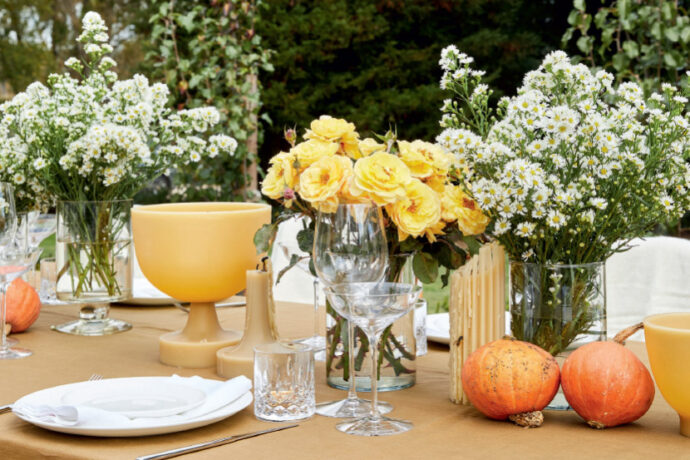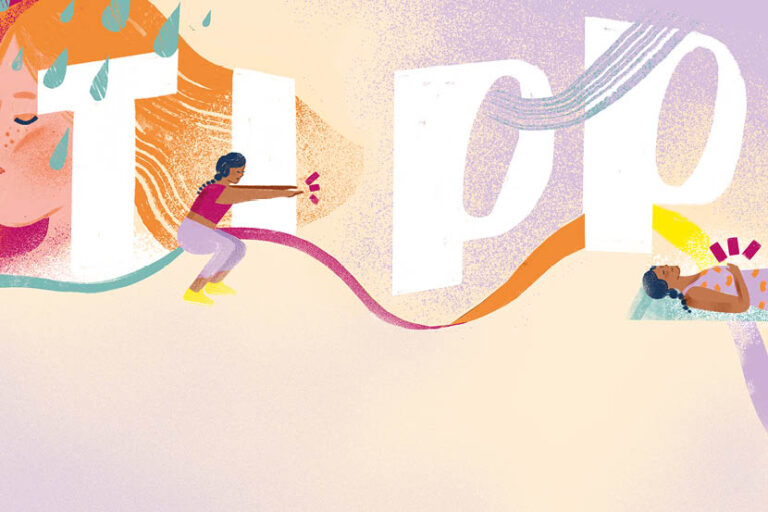
Idle chat doesn’t have to be tedious. It can be playful, enlivening, and reveal profound truths
In 2020’s global shutdown, when human connection was in short supply, small talk took on a new meaning. No longer the less interesting relative of meaningful conversation, chit-chat grew large in importance. With no soirees for most of the year, small talk had little chance to corner us in the kitchen at a party as we politely danced with it, plotting our exit. Instead, it entertained us as we queued outside supermarkets, metres apart.
I once read that small talk was the equivalent of dogs sniffing each other’s bottoms. I must confess, I’ve never liked it (small talk, that is), even though I’ve been praised for my skills in it. I’ve always felt it’s an exchange of questions from one person who didn’t really care for the answer, with a half-hearted response from the other. And it’s been suggested my dislike of idle chatter is laced with snobbery. I’ve looked at this and wondered whether there’s some truth in it. Do I think small talk’s beneath me?
The answer is no. I like deep and meaningful conversations, but I don’t want to engage on that level all the time. I don’t always want to work that hard. Conversation needs to be many things, such as the soothing balm to a hard day at work, and wise words to life’s conundrums – and the rest in between. It turns out, however, that I’ve failed to understand the point of small talk. It took a trip to the shops to illustrate its importance.
A little while ago, I struck up a conversation with a stranger at my local supermarket while waiting to pay for groceries. The stranger, looking as bored as I was, initiated the conversation with a smile and a nod of the head, a non-verbal exchange of pleasantries. The conversation started, rather typically, with a note on the – unseasonably cool – weather. This led to a discussion about gardening. The exchange snowballed into talking about the different species of birds we’d seen in the garden. And without even noticing it, an in-depth conversation unfolded.
Do we feel like our world is now smaller, or bigger? Perhaps we wouldn’t have ordinarily noticed the birds in our busy day-to-day? Perhaps we wouldn’t have struck up a conversation so casually and with so much ease had it not been for our collective experience and brief pause from the bustle of routine? We both agreed that, strangely, the world had become bigger, because if you concentrate on any one thing, it becomes a world of its own.
We were now experiencing life under a microscope, where before we were experiencing it as an overview. This debate, which involved so much honesty and exploration, had started with the weather. And after having it, I felt the same satisfaction I do after eating a good meal.
Small talk, when done well, is a constant and seamless exchange, weaving words together, ending with a patchwork quilt of sentences. It’s a great swim, not against the tide, but with it. It’s a polite dance, where you waltz your partner in the throes of a heart-to-heart. People assume that intimacy can only be present in conversations with depth. But I’ve changed my ideas about this. There is intimacy in exploration and the getting-to-know part of a dialogue. You invest a little of your precious time to get the measure of a stranger. There’s depth, intimacy, and a lot of meaning in the smallest of chat.
If you think about some art forms, from paintings to novels, they start with a rough idea. A fashion designer will sketch out their design, and a novelist will start with a first draft. Philosopher and author Alain de Botton sees these first artist impressions as a version of small talk. On his School of Life website, he discusses English artist John Constable painting 50 studies of the clouds. In this way, Alain suggests the humble beginnings of dialogue are akin to the makings of great works of art. They start small, with layers added and built upon.
There’s depth, intimacy, and a lot of meaning in the smallest of chat!
If, like many people, you can’t get your head around small talk, you might think of it as the first building block to having a decent discourse. It needs to start somewhere, and it needs to start small. Don’t scare off a potentially good conversationalist by talking about the secrets of your heart. You might strike gold and find they’re on your wavelength and could in time become a friend. But going too far too fast is akin to asking a new date what they think about having kids – not always well received.
My thoughts on small-scale chatter haven’t been led by snobbery, but by impatience and a desire to unravel a conversation and get into the heart of it, ignoring the chit-chat waltz. Low-key chit-chat can be seen as an adventure, where you allow yourself to fall wholeheartedly down a rabbit hole. Every conversation has the potential to lead to a philosophical place that’s deep and enlightening, should you wish it to. A friend recently told me he didn’t mind the beginnings of a dialogue with a stranger that might start with the dreaded weather. ‘That’s not small talk, that’s getting to know someone,’ he said.
Like everything else in life, how we perceive a topic is a matter of interpretation. Someone’s comment about a sunny day might be a clue to how they feel about life, be it joyful or less so. Or an aside about their journey could be a reflection of their personality – meticulous and a little obsessive, or carefree and breezy? To dismiss small talk as banal nonsense ignores its true function.
There are hidden depths in seemingly mindless chatter, and throwaway lines can be a gateway to people’s souls. And that’s deep.
TALKING POINTS
- At the beginning of a conversation, be natural, don’t force it, let it develop organically.
- Trust your instincts and be ready to pick up on something someone says, however slight it might appear, which you can then develop into a deeper conversation.
- When engaged in small talk, don’t be looking over the person’s shoulder or around the room. They deserve your full attention, for however short that time might be.
- Remember, small talk can be enjoyable, and can make your day nicer just by the sense of friendliness it can create.
- If you’re stuck for something to say, refl ect on your surroundings. Is there an interesting painting on the wall? Did you have an eventful journey?
- Take note of what someone is choosing to talk about. It’s a clue to their personality and might reveal their interests and background.
- Don’t be afraid to direct the conversation, especially if your small talk partner isn’t very chatty.
- If you’d like to get a better feel for small talk, take note of chatter at parties, in the supermarket, or in the queue at the post offi ce. Listen to what people are talking about and watch their body language.
Don’t be afraid of shutting down a conversation if you’d rather it didn’t carry on, or you feel uncomfortable. Never feel obliged to divulge any personal information no matter how much someone else might seem happy to share. Your privacy and safety are of the utmost importance.


















